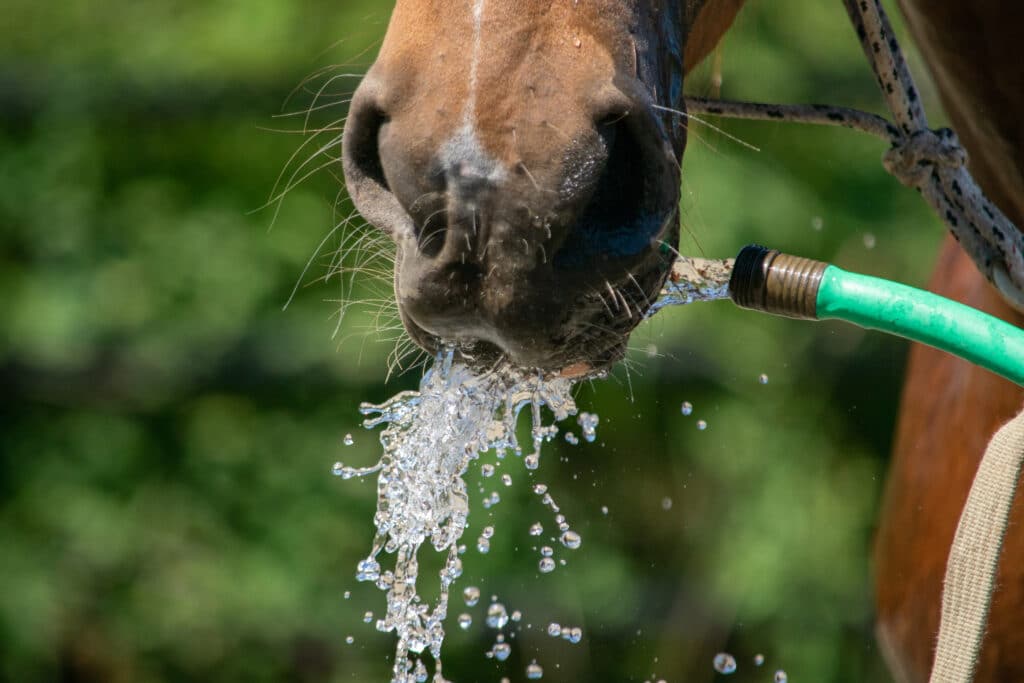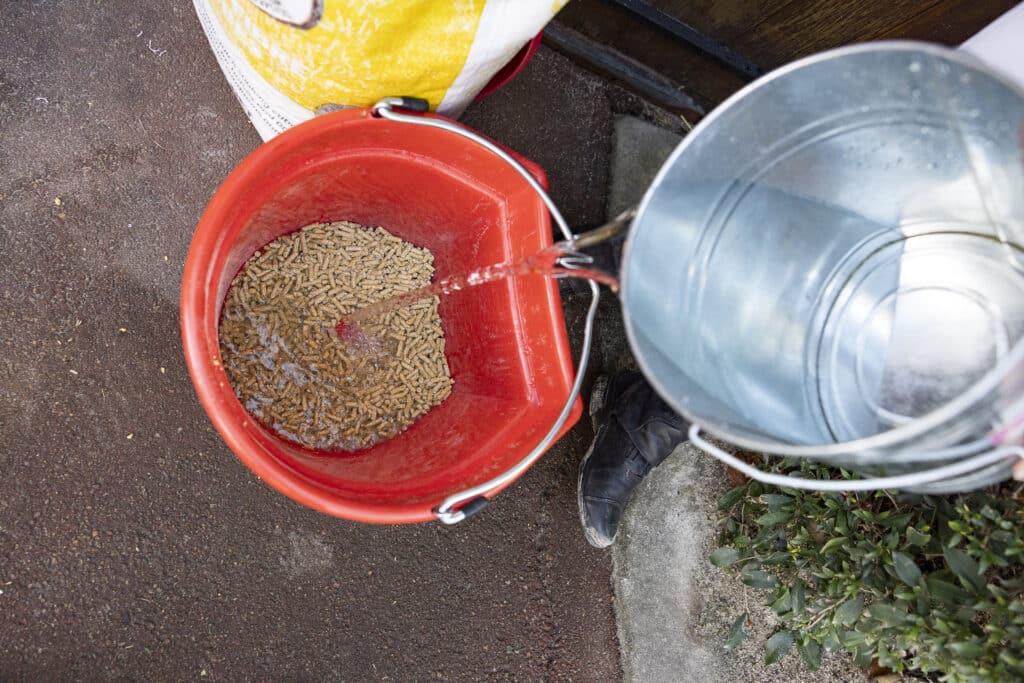17 Dec Keeping Horses Hydrated
Did you know the MOST important nutrient in our horse’s diet is water? Water is involved in every aspect of function and health, and exists in a finely balanced system, which needs constant replenishment. Any water loss needs to be matched with intake! Without water, dehydration can have a significant impact on their health and function and lead to damage and illness, and even death.
An 500kg horse at rest can drink between 25 to 50 litres of water per day.
The amount of water they need to drink is influenced heavily by a number of factors, and can increase dramatically with:d
- Hot or humid weather
- Exercise
- Lactation
- Health issues or illness
- Diets high in dry forage and hay
Adequate hydration is vital all year round, but especially in summer, when horses use sweating to help with thermoregulation (keeping their body temperature normal). Horses should be provided fresh, clean water at all times.
10 Reasons water is essential for your horse
💧 A horse is made up of 70% water, and water is needed to make up the various cells in the body from their hoof wall to their eyes, as well as vital substances like blood, saliva, mucous and enzymes.
💧 Water is needed to break down forage in the hind gut. If they are not getting enough water, the fibre in the hindgut can dry out too much and lead to issues like impaction colic.
💧 Water carries the nutrients and chemicals produced during digestion and fermentation across the gut lining for use in the body
💧 Water carries oxygen around the body, delivering it to the cells to energise them and carbon dioxide away from them to reduce fatigue. When dehydrated, their circulation can be impacted which is detrime
💧 Water removes waste from the horse’s body through the lymphatic and secretory systems
💧 Water is essential for maintaining the skin barrier – their first line of defence against infections and parasites!
💧 Water isn’t just ingested through drinking; they can get it through the forage and feeds that they eat. Fresh pastures contain high percentages of water, but dry hays have a low moisture content, so horses will need to drink more when consuming large amounts of dry roughage.
💧 Water helps horses maintain body temperature through evaporation when sweating and breathing during hot weather and exercise
💧 Water and adequate hydration is essential for hoof health – when a horse is dehydrated, the blood thickens and struggles to flow through the tiny capillaries in the hoof, reducing the blood flow to these areas.
💧 The kidneys help to regulate the fluid balance in the horse’s body, altering the concentration of their urine, to either conserve water or excrete more when needed.

Keeping Your Horse Hydrated - 4 Tips for encouraging your horse to drink
You can lead a horse to water, but you can’t make him drink! Horses sometimes don’t have a strong urge to drink regularly, so it can be up to you to encourage them. Here are 4 tips for encouraging your horse to drink:
PROVIDE FRESH, CLEAN WATER
Horses are fussy, and any off taste in water can sometimes put them off. Algae grows faster in troughs during summer, so it can help to clean your trough more regularly. If you are worried, you can also add small amounts of molasses, or other additives to encourage drinking.
MAKE SURE THE WATER IS COOL Enough
Horses can sometimes be more likely to drink if their water is cool. This also helps them to maintain a cool body temperature. Try adding ice to their water buckets or troughs on hot days. If the water out of the tap is cool, refresh their water regularly before the weather heats it up too much.
PROVIDE SALT
Salt is an important electrolyte and helps a horse’s tissues to retain water. Adding salt to feed or giving them access to a pure salt block, can actually help horses stay hydrated.
A 500kg horse that is doing no work on a cool day, requires 10g of sodium, 25g of potassium, and 40g of chloride? These requirements go up as temperature and workload increases, which is often why it is recommended to add salt to your horse’s feeds!
Sodium and Chloride (the ingredients of plain salt) are essential electrolytes for a number of critical processes in the body! Potassium is another essential electrolyte, and together they are responsible for cell fluid balances, and help a horse’s tissues to retain water nerve and musculo-skeletal function. Salt can act as a buffering agent for acid in the horse’s body, including lactic acid & acidosis of the hind gut.
SALT & DRINKING
Salt is also vital for the drinking reflex. When a horse gets low in sodium, it’s body conserves more water, but it actually lowers thirst stimulus. So while the horse needs to consume more water, its body isn’t telling it to drink more, and they can become dehydrated. Horses that aren’t consuming enough sodium, are also more likely to experience heat stress, and dehydration can lead to issues like colic.
Read more about adding electrolytes and salt, and how to calculate how much salt your horse needs here.
FEED A Mash feed
Feeding a wet mash can be a great way to get some extra water into your horse. Our Lupin Fibre Mashes Lupin Fibre Cubes and Lupin Fibre Boost are highly palatable and delicious and great for encouraging fussy horses to eat.
If you are travelling or competing, or the weather is hot you can add extra water to make your mash sloppy to encourage them to slurp up those extra yummy juices!




No Comments